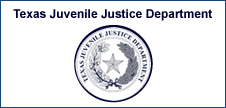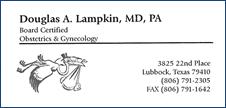What is depression?

Prolonged depression can be a debilitating psychological disorder. Depression is often expressed as persistent unhappiness, hopelessness, loss of interest and/or pleasure in usual activities, difficulty concentrating, insomnia or oversleeping, fatigue and anxiety. Depression can be caused by a number of factors, most involving trauma in some form. If left untreated, depression can seriously impact the quality of – or even ruin – an individual’s life.
What are the effects of depression?
Individuals suffering from depression often lack the motivation to get out of bed, and can lose interest in the activities they once enjoyed. Since depression causes individuals to feel as if they are carrying a burden no one else can comprehend, those suffering from the disorder will isolate themselves from loved ones and trusted friends.
While depression is overwhelming, there is hope. Even the most severe and complicated cases of depression are treatable, and with the proper care individuals can enjoy a life free from the illness.
What are panic and anxiety disorders?
All panic and anxiety disorders share the common symptom of excited, intense and enduring fear or concern in circumstances where a person typically wouldn’t feel scared or worried. Individuals suffering from anxiety disorders often experience intense, sustained anxiety and nervousness. Analogous to an anxiety disorder, a panic disorder is marked by recurring, unpredicted panic attacks.
What are the effects of panic and anxiety disorders?
Various issues arising from panic/anxiety disorders include sadness, low motivation, substance abuse and health problems. Problems can arise when the original disorder is paired with continual nervousness. Never abating or taking a break, nervousness can leave individuals so consumed by fear and drained of energy that they are unable to maintain relationships and usual activities.
Symptoms of panic and anxiety disorders include:
- Pounding heart
- Sweating
- Stomach upset or dizziness
- Frequent urination or diarrhea
- Shortness of breath
- Tremors and twitching
- Muscle tension
- Headaches
- Fatigue
- Insomnia
Individuals with a panic disorder are likely to avoid cramped public areas, such as shopping malls or airplanes. Some can associate their frequent panic attacks with a specific location, such as a bridge, a tower or railroad tracks.
An individual may suffer just one panic attack, while others may experience frequent episodes. Many people suffer from recurrent periods of panic and anxiety, unaware of a specific cause.
The symptoms of a panic attack include:
- Shortness of breath or hyperventilation
- Heart palpitations
- Sweating
- Nausea or upset stomach
- Feeling dizzy or lightheaded
- Chest pain or discomfort
- Trembling or shaking
- A choking feeling
- Feeling detached from your surroundings
- Numbness or tingling sensations
- Hot or cold flashes



